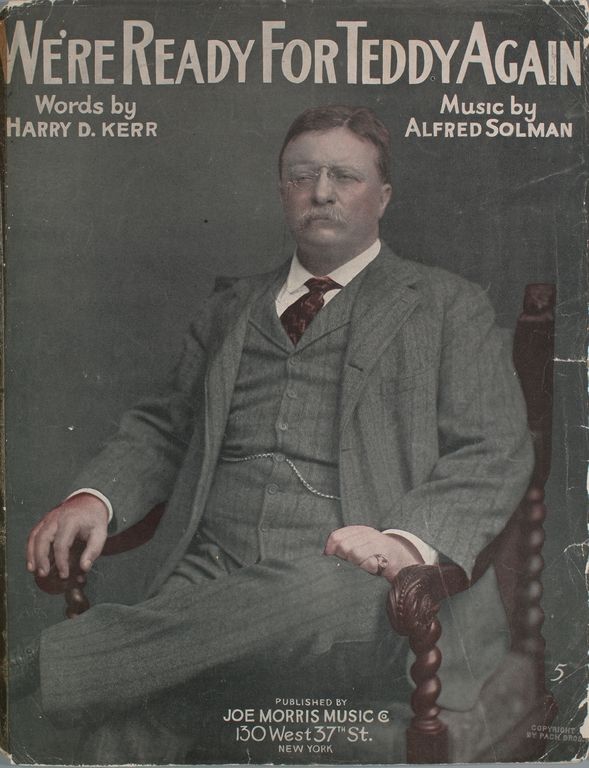Neither the Republican or Democratic platforms contain the slightest promise of approaching the great problems of today either with understanding or good faith; and yet never was their a greater need in this nation than now of understanding and of action taken in good faith, on the part of the men and the organizations shaping our governmental policy.
Theodore Roosevelt accepting the presidential nomination of the Progressive Party, August 6, 1912
As we approach the 2024 election, the US is in the midst of funding two major wars and trying to effectively deter a third. Ukraine’s defense against the Russian invasion has faltered due a reconstituted and more deadly Russian military as well as the delay in aid. Israel’s war against Hamas is taking a toll on both Palestine’s and Israel’s future. Meanwhile, China expands its threats in the Western Pacific towards not only Taiwan, but also the Philippines. Here at home, the federal government’s apparent impotence in the face of economic inequality and an influx of 7 million illegal immigrants feeds a disillusion with our constitutional democracy that divides the nation.
At this perilous time in our history, we enter a presidential election where polls show a majority of voters worry about President Biden’s obvious physical and mental frailties. The only current alternative, Donald Trump, is equally elderly, increasingly mentally unhinged and facing criminal trials in four jurisdictions. If your close your eyes and just listen to the two of them, their campaign messages are identical – the “other guy” is mentally incompetent and an existential threat to democracy. I am no conspiracy theorist (see this), but Biden and Trump increasingly look like mere figureheads for other agendas having little relationship to the real issues facing the nation. The legitimacy of our democracy depends on flushing out those issues, as difficult as they may be, into the open so the American people can decide, not just isolated elites.
Part of Trump’s agenda in this election is obvious. He is running for his life from the very real possibility of becoming a convicted felon and thus losing not only money, but also his freedom in prison. His first act as President would be to order the dismissal of the federal charges against him. After this, his motives become murkier. It may simply be the further enrichment of himself and his family while catering to his supporter’s lowest impulses. Trump has once again taken hard lines against immigration and the border invasion that cannot be achieved without congressional approval. His failure to achieve meaningful long-term reform during his previous stint in office belies the likelihood of any substantive change. Instead, he talks of being a “dictator for a day”, a goal which shows his utter disregard for the democracy he claims to be defending and inability to unite the nation behind any goal see this.
Meanwhile, Biden appears primarily engaged in trying to hold a fractious Democratic Party together to “save democracy” from a Trump victory at any price. This means that he has to unite moderate and traditionally liberal Democrats with the increasingly powerful democratic socialist or “progressive” base of the party. He tries to paper over the differences by buying their support with billions of federal dollars in flagrant disregard of the effect on America’s long term financial stability. His foreign policy uses the same strategy, where billions to Ukraine, Israel and climate change projects vainly try to preserve American unipolar hegemony. Meanwhile, he further divides the nation by offering tacit and occasionally vocal support for identity-group grievances against everyone else. But are these the ends or simply a means to insulate an isolated international elite from the consequences of their greed?
This website began as a call to national unity in the face of the rise of nationalism elsewhere in the world and the challenges it creates here at home. James Strock, a member of the Board of Advisors of the Theodore Roosevelt Association, recently pointed out that half of the world will be voting in elections this year and, whether it is the US, Russia, or India, it is really nationalism, not democracy, that is on the ballot. He correctly argues that only a genuine American nationalism that addresses our own divisions while respecting the differences of other nations can renew our democracy and enable us to succeed in an increasingly multipolar world (See this post on his “ The Next Nationalism” Substack). Building such a modern American nationalism will require a clear understanding of the choices we must make as a people in the reality of the current world. As we approach the upcoming elections. I will be highlighting the choices we Americans must face.



